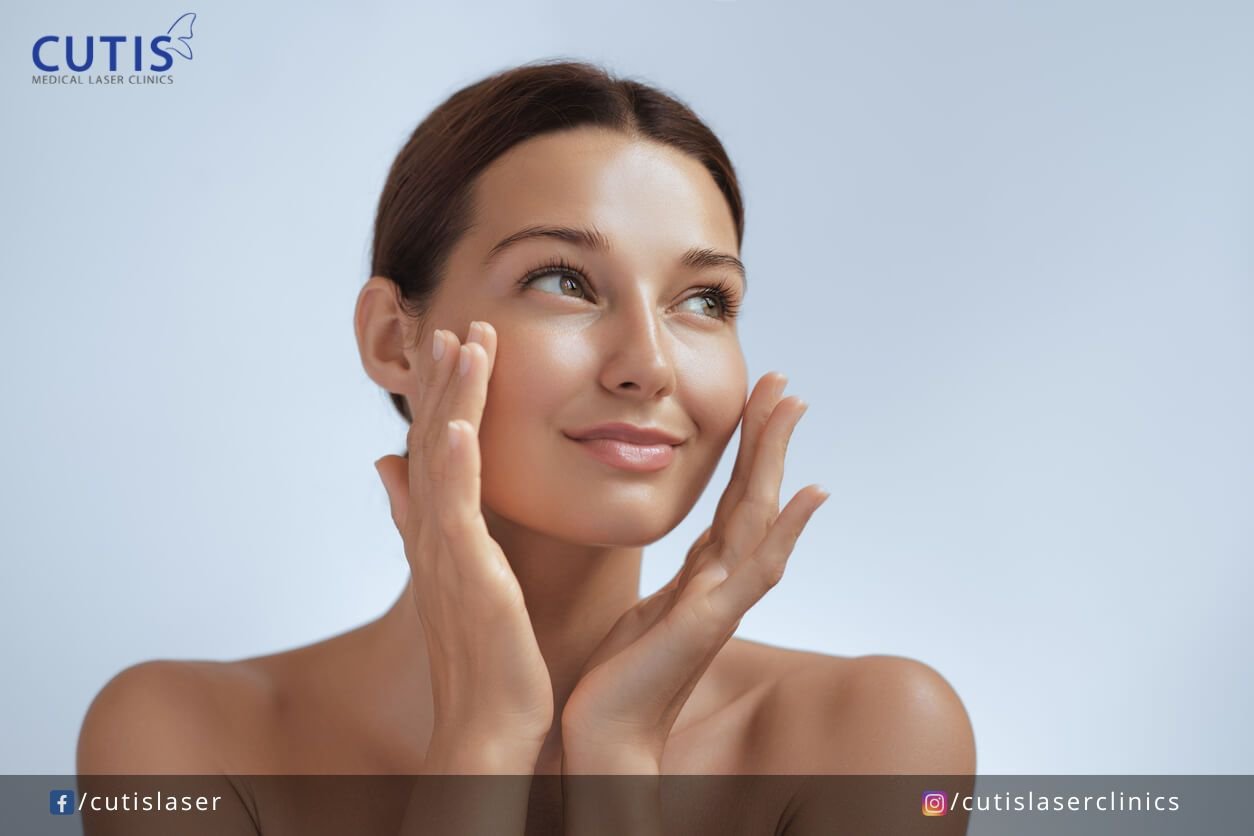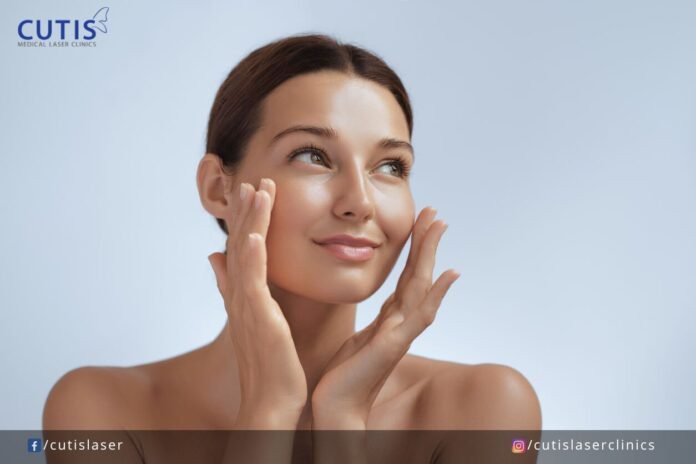Table of Contents
Skin structure and how it works
Penetration vs absorption
What affects skincare penetration?
- Molecular size
- Ingredients’ solubility
- Concentration of the active ingredient
- The polarity of the molecule
- Condition of the skin
Can skincare ingredients enter the bloodstream?
Cutis and Dr. Sylvia Skin Care as your beauty partner
If skin is an effective physical barrier that is designed to keep things out, what happens to all those products we apply to our skin? Do creams, lotions, and serums penetrate the skin and do what they are intended to do? What goes on with the skin after we apply our favorite formulas?

Continue reading as we dive a little into the structure of the skin, how it works, and the science of skincare.
Skin structure and how it works
As the largest organ in the body, the skin serves as the first line of defense against infection and other harmful invaders. Apart from preventing the entry of microbes into the body, the skin (via sweat glands) secretes oil or sweat, which contains natural antibiotics that kill microbes.
The skin has three layers: the epidermis, dermis, and hypodermis. The epidermis consists of the stratum corneum, which is made up of dead skin cells. The dermis or the middle layer is where the blood vessels, skin proteins ( collagen and elastin), connective tissues, and sweat glands are located. And lastly, the hypodermis, which is the innermost layer of the skin, contains fat and connective tissues.
It is easier for skincare ingredients to penetrate in areas with thinner skin. Facial skin, for instance, is thinner than the skin on the palms of the hand and soles of the feet. It is also worth noting that thin skin is also more fragile and can be sensitive to regular skin care products, particularly the eyelids or the skin around the eyes.
Penetration vs absorption
While many use the terms skincare ‘penetration’ and ‘absorption’ interchangeably, they are two different things. Penetration is when an ingredient gets through the stratum corneum into the deeper layers of the epidermis, while absorption is when a chemical reaches the bloodstream.
When it comes to skincare, penetration is mostly the goal. It is important for certain active ingredients to penetrate specific layers underneath the surface like the dermis. There are also products meant to sit at the top layer of the skin like lotions that nourish the skin barrier and sunscreens that protect the skin against ultraviolet rays.
What affects skincare penetration?
The skin does a very good job of keeping things out. As previously mentioned, it is a physical barrier that isn’t easily penetrated. So, how do ingredients penetrate or get into the skin’s deeper layers? Several factors affect the ingredient’s penetration ability, as well as the overall condition of the skin.
- Molecular size – Compared to larger molecules, smaller ones can penetrate better and more easily. This is because their small size enables them to enter between the gaps in the skin cells. Ingredients that have large molecular structures, however, can still benefit the skin by providing a hydrating effect or sealing the skin.
- Ingredients’ solubility – As the skin is water-proof, it is more common for oil- or lipid-soluble ingredients than water-soluble ones to penetrate better. A lipid-soluble vitamin C, for instance, is known to penetrate better and be more effective than regular L-ascorbic acid or water-soluble alternatives.
- Concentration of the active ingredient – Active ingredients have a specific percentage range in which they deliver the best results. A higher percentage is not necessarily better, as some formulas with high concentrations may be less effective or result in inflammation.
- The polarity of the molecule – The skin is negatively charged, so neutral or non-polar molecules penetrate better. Those that are positively charged (like certain types of peptides) may find it difficult to penetrate the skin barrier.
- Condition of the skin – Healthy skin that is exfoliated and hydrated fares better in penetration than dry skin. Dryness creates a film or a barrier that keeps the skincare ingredients from penetrating or working their magic.
Can skincare ingredients enter the bloodstream?
There was a claim years ago that 60% of the ingredients we apply to our skin get into the bloodstream. Considering the number of ingredients in our skincare and hair products, as well as makeup, this can be concerning.
Absorption does happen, but it is probably more difficult than you’d think. This is because the skin does a very good job in acting as a barrier that blocks substances from getting into the body. It would take high doses and regular use of some of the most intense chemicals to get absorbed into the bloodstream.
Cutis and Dr. Sylvia Skin Care as your beauty partner
If you’re looking to modify or elevate your skincare regimen, we at Cutis can help. Our very own skincare line, Dr. Sylvia Skin Care, features an intensive medical-grade collection that delivers multi-layer fortification to the skin. From facial cleansers to moisturizers to anti-aging serums and broad-spectrum sunscreens, we got you covered.
And for skincare concerns that make you self-conscious, we have a range of non-surgical treatments that can help. Whether you’re worried about fine lines and wrinkles, sun damage or pigmentation, scarring, or skin dullness, we can help. We personalize our treatments to make sure that they suit your needs and goals.
For more skincare tips and product recommendations, browse through our blog. Don’t hesitate to contact Cutis Medical Laser Clinics in Singapore and schedule a consultation with one of our aesthetic doctors to find out which treatments suit your concerns best.
